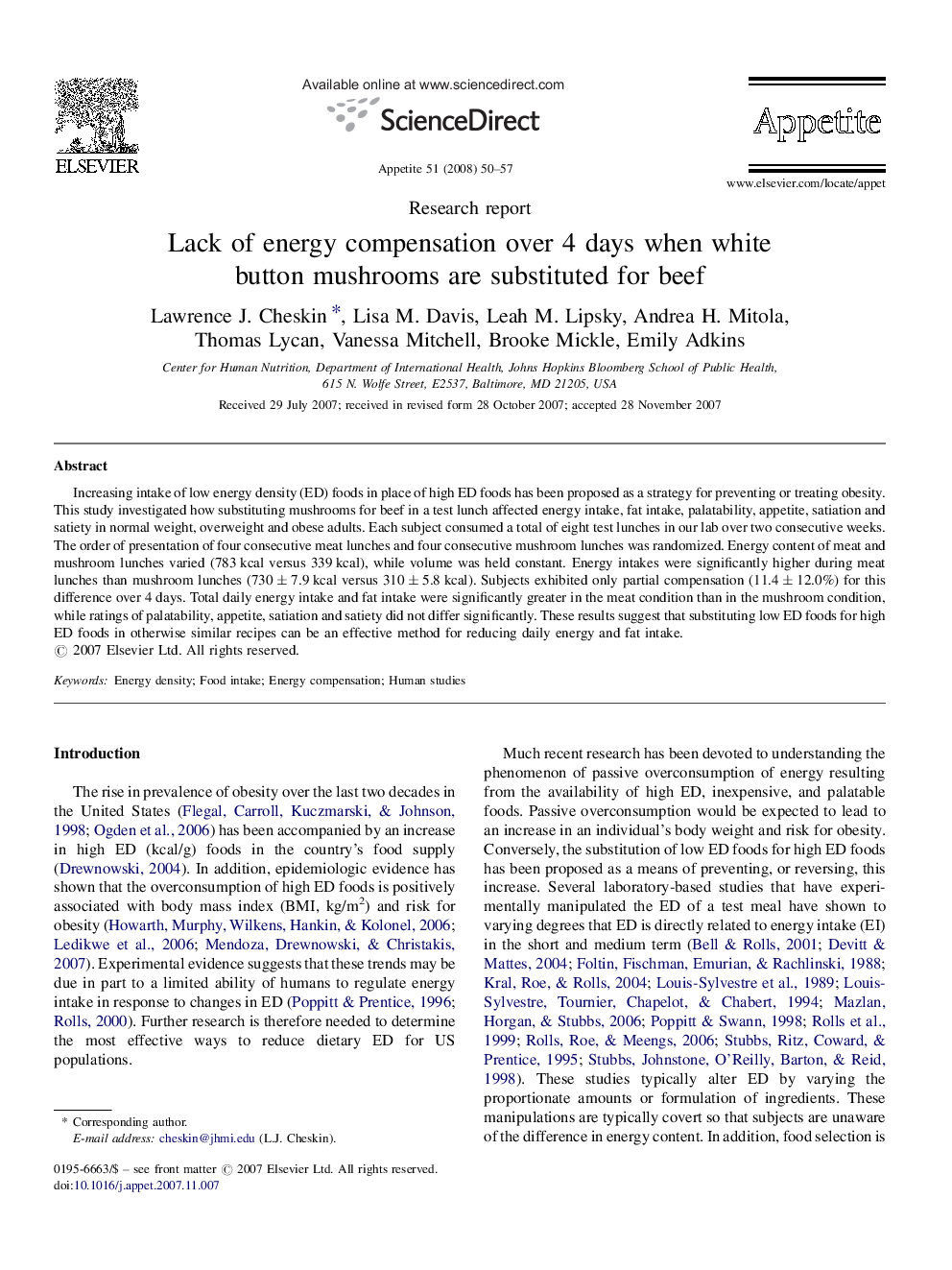| Article ID | Journal | Published Year | Pages | File Type |
|---|---|---|---|---|
| 941518 | Appetite | 2008 | 8 Pages |
Increasing intake of low energy density (ED) foods in place of high ED foods has been proposed as a strategy for preventing or treating obesity. This study investigated how substituting mushrooms for beef in a test lunch affected energy intake, fat intake, palatability, appetite, satiation and satiety in normal weight, overweight and obese adults. Each subject consumed a total of eight test lunches in our lab over two consecutive weeks. The order of presentation of four consecutive meat lunches and four consecutive mushroom lunches was randomized. Energy content of meat and mushroom lunches varied (783 kcal versus 339 kcal), while volume was held constant. Energy intakes were significantly higher during meat lunches than mushroom lunches (730 ± 7.9 kcal versus 310 ± 5.8 kcal). Subjects exhibited only partial compensation (11.4 ± 12.0%) for this difference over 4 days. Total daily energy intake and fat intake were significantly greater in the meat condition than in the mushroom condition, while ratings of palatability, appetite, satiation and satiety did not differ significantly. These results suggest that substituting low ED foods for high ED foods in otherwise similar recipes can be an effective method for reducing daily energy and fat intake.
